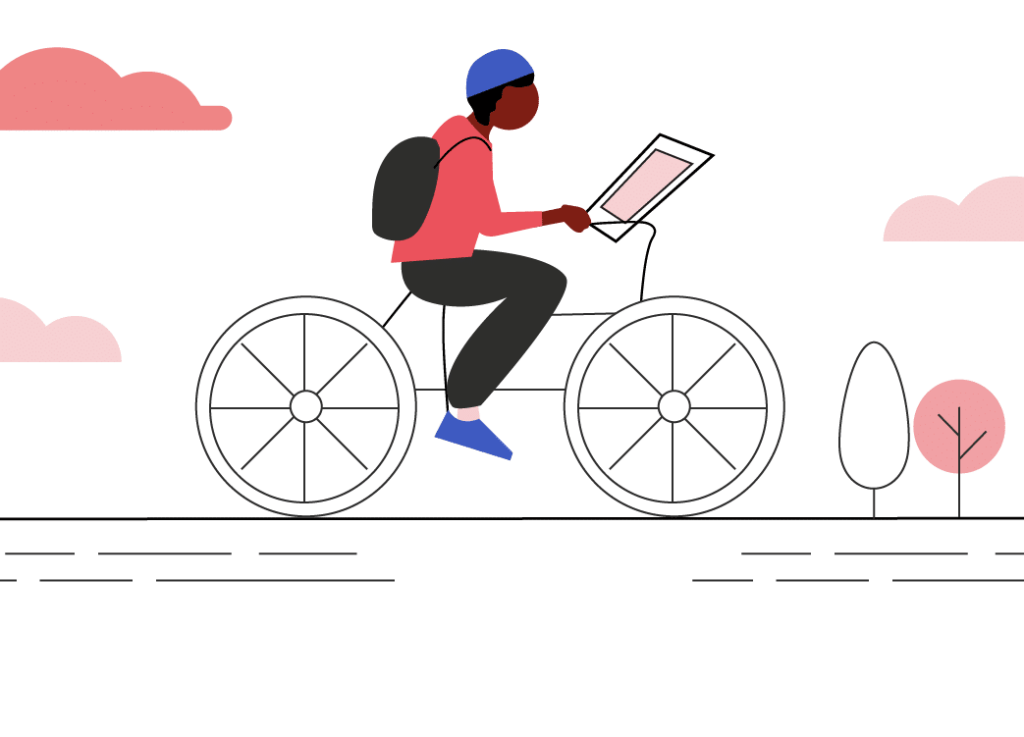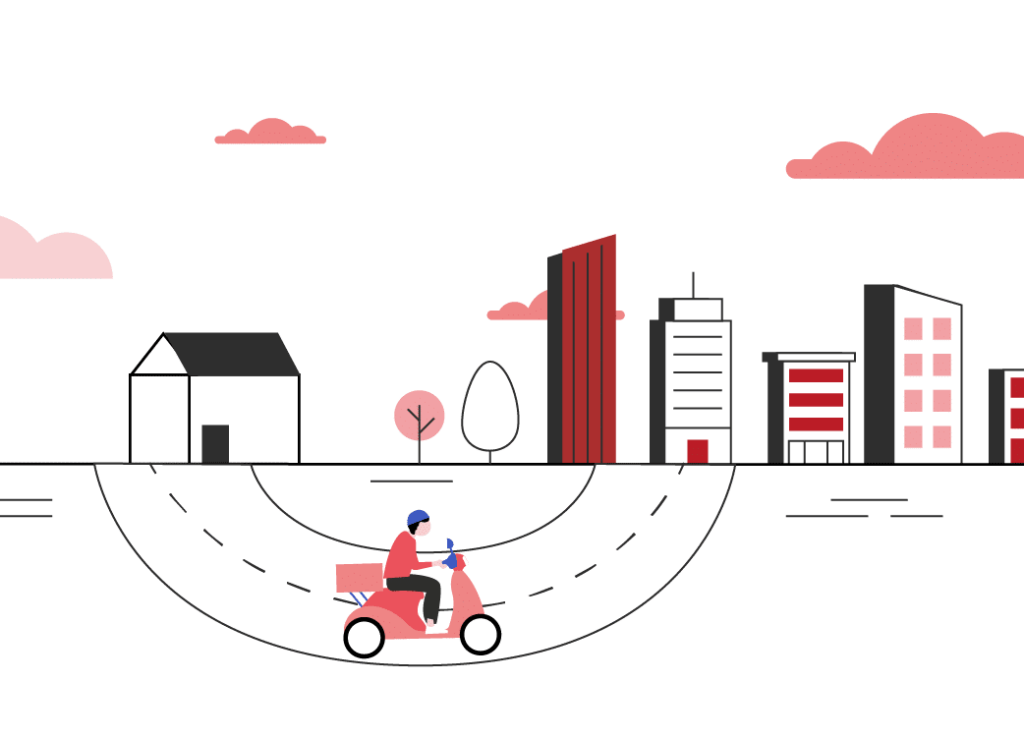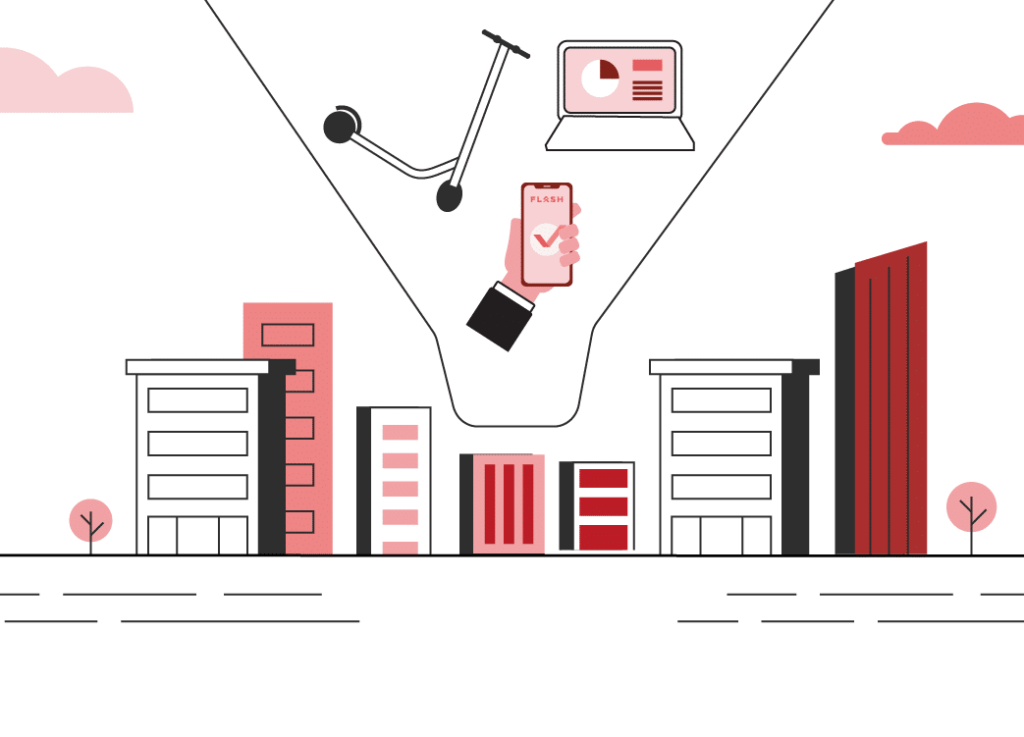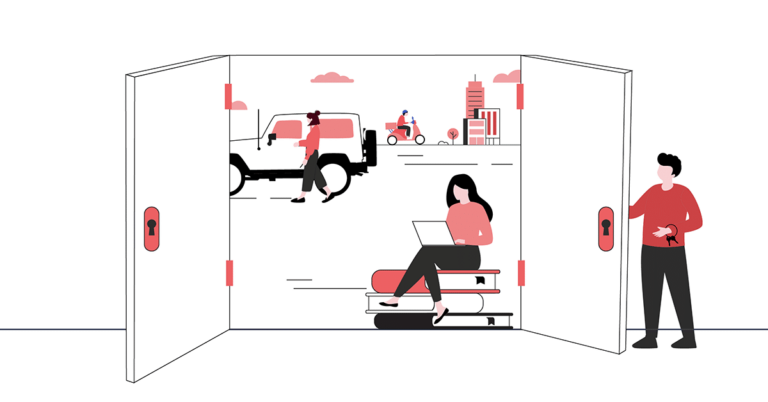The verdict is in: parking is the key to a smarter city. Behind the scenes, urban planners, technologists, and engineers are charging full steam ahead to adapt to the future of flexible work. The flex work week is a bell that can no longer be unrung—leaving a permanent mark on the cadence of employee commutes. Mobility leaders must contend with more regimented travel plans as people aim to make better use of their time.
The challenge for those who run cities then becomes clear: how to make travel a stress-free experience, from door to door. There is no single answer. The solution lies with a mix of integrations comprising consumer technology, addressing complex infrastructure, and ensuring frictionless ingress and egress. That’s where parking comes in.
Lead Today and Prepare For Tomorrow
If parking is the key to a smart city, then parking organizations are the gatekeepers that unlock the door. Industry leaders create the solutions and travel experiences that impact each day’s start and end—a universal constant among an average city’s daily organized chaos. Now, the combination of telecommuting and innovation in the industry has positioned parking to become more impactful.
Companies like Parkwell and ACE Parking are leading the pack. We spoke with Parkwell CEO, Joel Christensen, and Owner and CEO duo at ACE Parking, Keith B. Jones and John Baumgardner, about leading today and looking toward a tangible future.
ACE Parking’s Jones is lasered in on making incremental, practical improvements that affect customers. He focuses on what can really happen tomorrow versus far-off idealistic scenarios. As a professional philosophy, he dubs these unrealistic future scenarios as tomorrowland. In parking, tomorrow includes micro-mobility methods, adapting garage space for new integrations, fleet management, and technology partnerships. These business solutions that capture travel opportunities indicate that the parking industry is a microcosm of elements in a smart city. Understanding these elements is critical for parking leaders to thrive and remain future-proofed.

Delivering Value In The Immediate Onset of Flexible Work
Leaders were immediately faced with drastic shifts in commuting patterns as the pandemic took hold. For ACE Parking’s Baumgardner, perhaps the largest rapid change was an increase in underused capacity. “Until the commercial worker is feeling comfortable coming back to work, [our] garages are sitting at 20 to 50 percent capacity,” he shares.
The range was just as wide for Parkwell’s Christensen; his assets have experienced only 10 percent of their pre-COVID customer base still commuting to the office. Christensen describes the remaining commuters—the flex workers—as an “unpredictable” group. Parkwell and ACE Parking have had to throw out traditional monthly parking charging structures and rethink standard pricing conventions. Both organizations have had to reexamine how they’ve typically benefited from underutilized parking spots.
Operators can no longer rely on, as Christensen describes, an “owner-friendly utilization cap.” In pre-flex work days, assets would benefit from selling monthly passes and having their customers utilize their spots on staggered schedules. In the meantime, operators could sell those same spots to other customers for days when monthly subscribers were not using them. When benefiting from this structure, Christensen has noticed anywhere between 20 to 27 percent of monthly parkers not utilizing the garage on a given day, allowing for the same percentage of overselling those spots. This option doesn’t exist in a world where people don’t rent monthly parking as often. To compensate for being unable to rely on overselling, Parkwell and ACE Parking have experimented with new systems, including flexible parking passes. These can allow commuters to purchase parking by time or set price, allowing them to pay only when they need to match their new schedules. Christensen asserts this type of pricing is key. He says, “The benefit [of flex passes] is convenience without the locked-in price. That’s a big part of where we see this going as an operator. If you’re not offering that type of [pricing], then you’re not looking out for the customer.”
Lead the Charge
A FREE eBook breaks down the numbers behind the EV revolution and highlights parking’s critical role in the big picture. Hint: there’s a big opportunity you don’t want to miss.
Smart City Mobility as an Arena With Many Players
Never have mobility organizations found themselves on such a fertile yet fragmented ground. On the one hand, the possibilities to integrate with other technology players in mobility are endless. On the other, this large amount of choice extends toward the consumer, giving them options to choose different apps or technologies for each step of their journey.
There are mobility players available for every phase of a consumer’s transit—ingress, parking, urban mobility, and egress. At the start of their trip, consumers can travel themselves or use ride-sharing. When it comes time to park, they can choose multiple apps to point them to different facilities. For traveling inside cities once parked, micro-mobility options or taxi services can be used. Finally, the journey home also presents various options.
With so many players in each step of the journey, it becomes imperative to approach a solution that embraces digital transformation that leads to connected hardware and technology. By digitizing your services and making your parking asset central to a consumer’s transit, your business will become integral to a smart city.

The Parking Mobility Hub Starts and Ends From The Home
If there’s an opportunity to be taken from the pandemic, it’s that parking is no longer a static service. Indeed, as commuter habits change, parking organizations must find ways to attach new services and repurpose existing infrastructure to become epicenters of urban mobility. To FlashParking VP of R&D, Carlos Hernandez, this starts from people leaving their door and extends to services beyond parking. ”Before I leave my house, I’ll be able to reserve parking,” he says. “At the same time, I know I need to get an oil change, pick up my dry cleaning, and charge my vehicle. If I know that a parking garage has all of these extensible services without moving my car, that’s a huge benefit to me.”
Some of the services you might find in a mobility hub have taken a hit from the pandemic. However, research has shown that they will rebound. Businesses will regain their footing, micro-mobility is expected to recover, and commuters will need to travel and run errands yet again. In the meantime, some businesses have already begun to introduce added services and value in their space.
ACE Parking has created a testing site for COVID-19 amidst the pandemic, saving people time they would spend going to a clinic. Like many operators, Parkwell has introduced integrations with reservation apps, making it easier for people to plan their day. To support the decisions to implement these new services, assets need to have access to smart data.
To Adapt Your Business, Get The Right Intelligence
It’s near impossible to know what new integrations or services to add without having access to data. Once this data is collected, Hernandez’s next step is to ask the right questions. A new world of work requires a deeper understanding of how customers are making decisions. For example, it’s no longer a question of how often consumers get a car wash. It’s now important to know if getting a wash is an impulse, on-demand decision, or if people want to schedule it beforehand. Do people get a wash before or after the day is done? What kinds of cars are people most likely to wash?
These are the in-depth questions that will allow parking assets to add targeted services to find new revenue streams. Assets that don’t invest in robust data systems are likely to lose the most revenue. Christensen has placed data at the center of his operation, saying, “[New commutes] really create the need to have better business intelligence. A monthly parker is static. You can bet that they’re going to be utilizing the garage about 80 percent of the time. When that number becomes 20, 30, or 40 percent, the dynamics of your garage are more versatile, so you have a lot more to balance.” This concept of real-time yield management is becoming a more regularly needed component of parking operations.
At ACE Parking, Baumgardner is also doubling down on analysis—he is adamant about understanding his current customers. It’s this type of analysis that has led him to advise operators. “Take your mind off of what a monthly sale is,” he offers. “You really need to be dialing into each different tenant and understanding who’s coming to work on which days.” Baumgardner’s goal, after this analysis, is then to double the amount of people that are utilizing the garage but pay on a day rate basis, so revenue streams are the same for owners.

Create Tomorrow’s City With Your Municipality On Speed Dial
When it comes to contributing to a city’s health, parking operators should be intimately aware of their local governments’ strengths and challenges. “We believe that, ultimately, the way that you’re going to set up a smart city and the smart functionality in a parking hub is with collaboration from [the entity] that has the funds to make the connectivity,” says Jones. “Nobody has enough money other than the government.” Jones asserts that it’s in a parking operator’s best interest to get cozy with their municipalities—he has his local government on speed dial.
When it comes to creating a connected hub between city transit systems, parking assets, and consumer technology, it’s imperative to be, as Jones describes it, “hyper-focused” on connecting with local governments. While cities lay the foundations, they look to infrastructure partners to guide them toward efficiency.
Embrace The Opportunity To Integrate With Partners
As smart city gatekeepers, operators have to be privy to all the players in the mobility arena. A key element industry leaders are addressing is integrating with these apps and city services to remain competitive. Parkwell believes that embracing these integrations is doubly beneficial as it appeases customers and decongests a city at the same time. Christensen adds, “The future is going to require us to integrate with other systems and other parts of the mobility landscape. These integrations are critical for customers and cities by leading to decongestion with less traffic.” By integrating with technology partners, you have more efficient travel.
Along with technology partners, finding a way to utilize empty space is paramount. ACE Parking utilizes its strategy to stay close to municipalities and embrace fleet management integrations; they advise cities on how to design structures that allow fleets to come and go easily, helping with curb management in the process. At the same time, providing space for EV charging, mobile kitchens, or other services will allow customers to get essential services done right next to their car, so it’s a straight drive home afterward.
Being so central to a person’s everyday routine means that parking operators can take on a new role during the flexible work week: problem solvers. When traveling, commuters have many choices on how to complete their errands. If an operator makes it their responsibility to eliminate as many steps as possible, they have created value and received new revenue sources in the process. The flexible work week commute belongs to the gatekeepers of the smart city. It’s only a matter of how operators open the door.
Join the Parking Revolution, Subscribe
to Our Newsletter
We’re disrupting the parking industry because we believe our customers, consumers, and cities deserve better.

